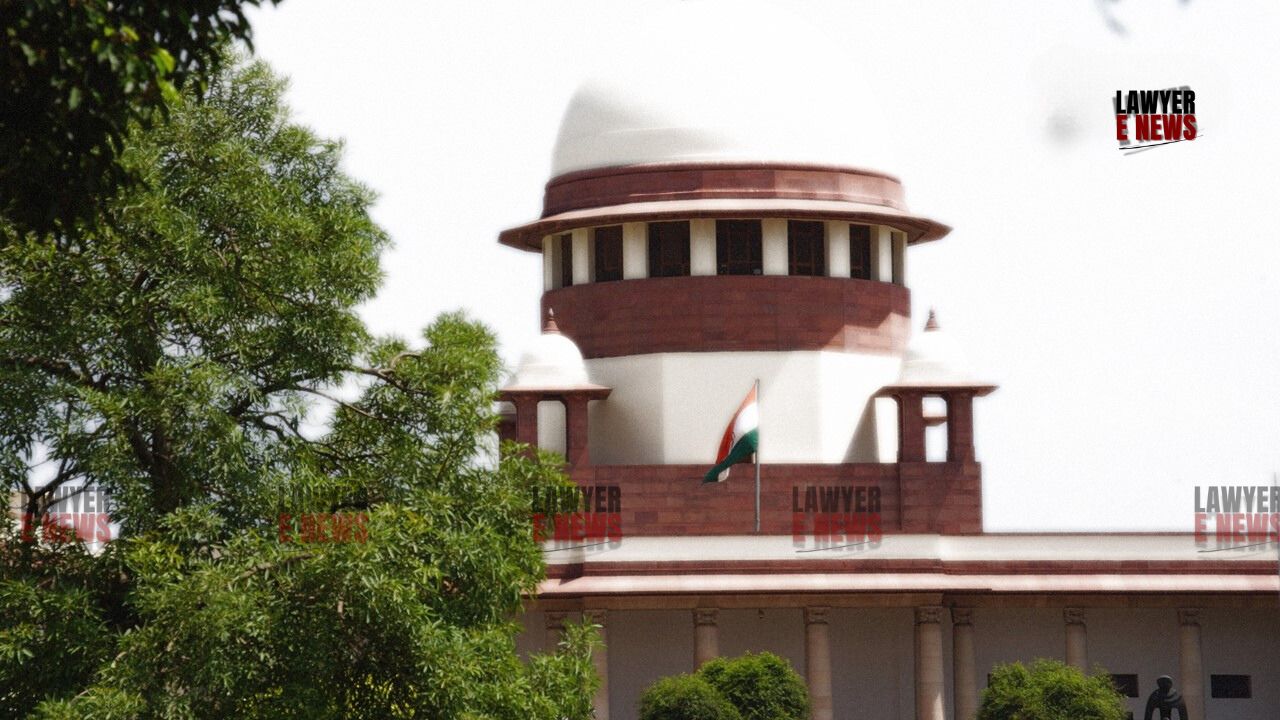-
by Admin
15 February 2026 5:35 AM



Supreme Court of India in George v. State of Kerala, Criminal Appeal [to be numbered] of 2024 (arising out of SLP (Criminal) No. 11041 of 2024), modified the sentence of George, convicted under Sections 279, 337, 338, and 304(A) of the IPC for causing the death of a pillion rider in a road accident. The Court, citing mitigating factors, reduced the sentence to the 117 days already served and lowered the compensation from ₹2.5 lakhs to ₹50,000.
The case arose from a road accident on August 7, 2007, in Alappuzha, Kerala, when the appellant, George, driving a mini-lorry, collided with a motorcycle, resulting in the death of the pillion rider, Santhosh Kumar. A pedestrian was also injured in the incident. The trial court convicted George under Sections 279 (rash driving), 337 (causing hurt), 338 (causing grievous hurt), and 304(A) (causing death by negligence) IPC and sentenced him to imprisonment along with fines. The High Court later upheld the conviction and added a compensation order of ₹2.5 lakhs to be paid to the victim’s family.
The appellant's counsel raised concerns over the identification of the accused, arguing that there was a contradiction in PW-6's testimony. PW-6 initially described the driver as an elderly person in the Section 161 Cr.P.C. statement but later identified George, aged 52 at the time, as the driver in court. The defense claimed that this amounted to a contradiction under Section 162(2) Cr.P.C.. However, the Court dismissed this argument, holding that the inconsistency was not significant enough to invalidate the identification. The Court noted:
"The appellant, at the relevant time of the accident, was aged around 52 years, and the statement given by PW-6 before the Police with regard to the mini-lorry driver being an elderly person does not amount to a significant contradiction." [Paras 8-9]
The main issue concerned the appropriateness of the sentence. The Supreme Court acknowledged the appellant’s age, 69 years, his health issues, and the fact that he had already served 117 days in prison. Citing a previous decision in Surendran v. Sub-Inspector of Police, where the Court substituted imprisonment with a fine in a similar case, the Court found that further incarceration was unnecessary.
"In the interest of justice, we deem it appropriate to modify the sentence to the period already undergone." [Paras 12-13]
The appellant also challenged the ₹2.5 lakh compensation imposed by the High Court, arguing that he was poor, of advanced age, and suffering from medical issues. The Court, considering these factors, reduced the compensation to ₹50,000, payable within 60 days. This amount would be deposited before the trial court for disbursement to the victim’s family.
"In the peculiar facts of this case, we reduce the compensation payable by the appellant to ₹50,000." [Para 15]
The Court upheld the conviction under Sections 279, 337, 338, and 304(A) of the IPC but modified the sentence. Given that the appellant had already been imprisoned for 117 days, the Court deemed this sufficient, and ordered his immediate release. Additionally, the compensation was lowered from ₹2.5 lakhs to ₹50,000, recognizing the appellant’s financial constraints and health conditions. The Court ordered the compensation to be deposited within 60 days.
The Supreme Court’s decision in this case reflects its balanced approach, acknowledging the gravity of the offense while also considering the mitigating factors of age, health, and time already served. The ruling sets a precedent for leniency in similar cases where the accused have faced prolonged legal battles and have served a considerable portion of their sentence.
Date of Decision: September 3, 2024
George v. State of Kerala
